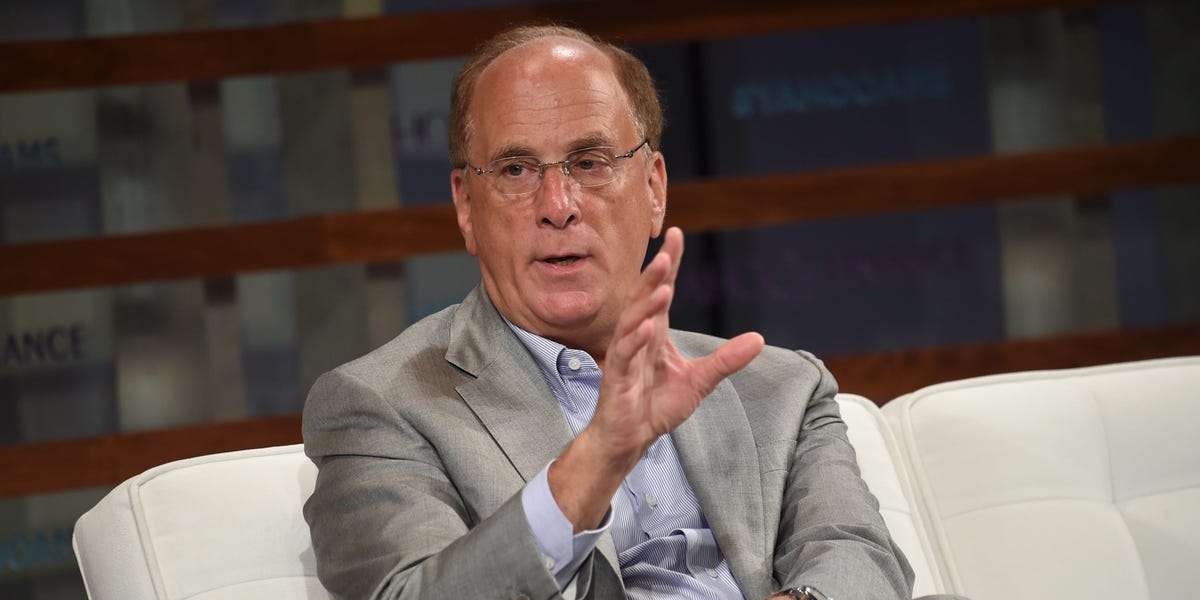- Larry Fink, CEO of BlackRock, believes AI will increase productivity and wages.
- His firm has increased assets while keeping its head count the same. Fink credits this to AI.
- Although AI optimists hope it’ll raise wages, others are more skeptical and fear job displacement.
Larry Fink, CEO of BlackRock, said on a recent earnings call that the company’s investments in AI will drive up productivity and raise wages.
Fink said the firm had increased assets by $2.5 trillion over the last 18 months while keeping head count the same, which he credits to productivity gains from technology advances, including AI.
“We’re going to bring down inflation in America. This is how it’s going to have to be done, driven through technology, which will increase productivity,” he said.
“What it also means is rising wages,” he added. “The whole organization is doing more with less people as a percent of the overall organization. That is really our ambition.”
The $10.5 trillion asset-management giant is becoming a key player in the AI revolution by positioning itself as the capital supplier for new data centers and power-generation facilities required by AI-driven companies.
At a conference last year, Fink said he was thinking a lot about how AI would reshape the firm.
“We spend a lot of time with different technologists who know much more about this than I do. They believe things like it will increase productivity by 30%,” he said.
Some economic studies have found that AI is already helping workers in white-collar jobs become more productive. But this doesn’t necessarily guarantee wage gains. If productivity goes up, business owners may pocket those extra gains for themselves.
While AI optimists hope it’ll lead to an economic boon, others fear it will create fewer jobs and lower wages in some professions.
Twenty percent of Americans have jobs that would likely be highly exposed to the impacts of AI, a White House report by the Council of Economic Advisors found.
Some of those will benefit positively from AI through increased productivity and new job opportunities, while some will be harmed, “typically due to job displacement,” the report said.





